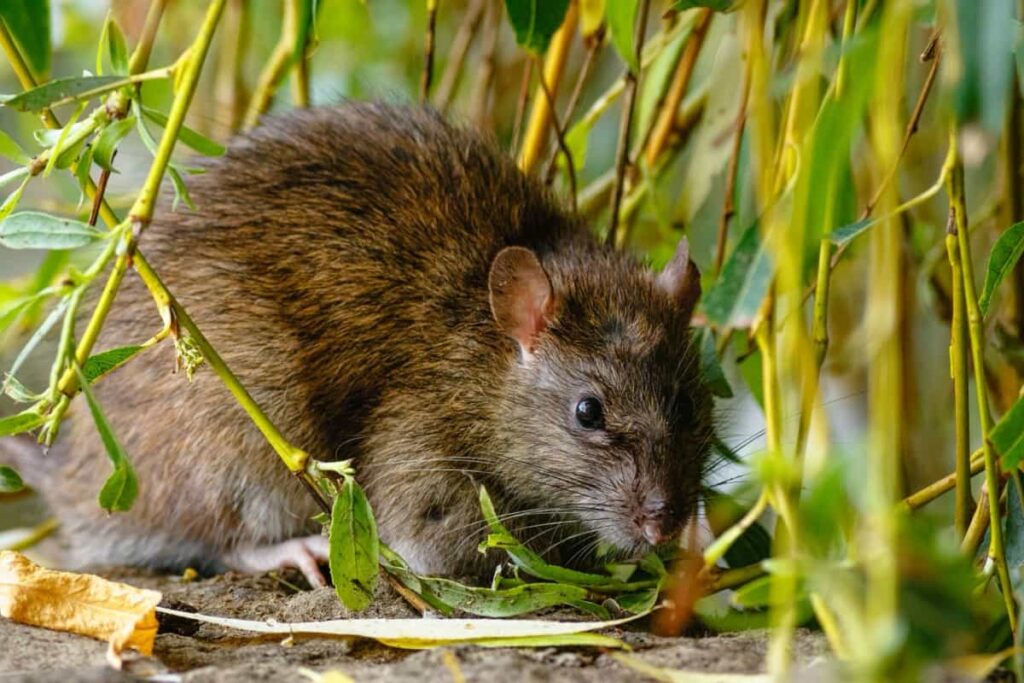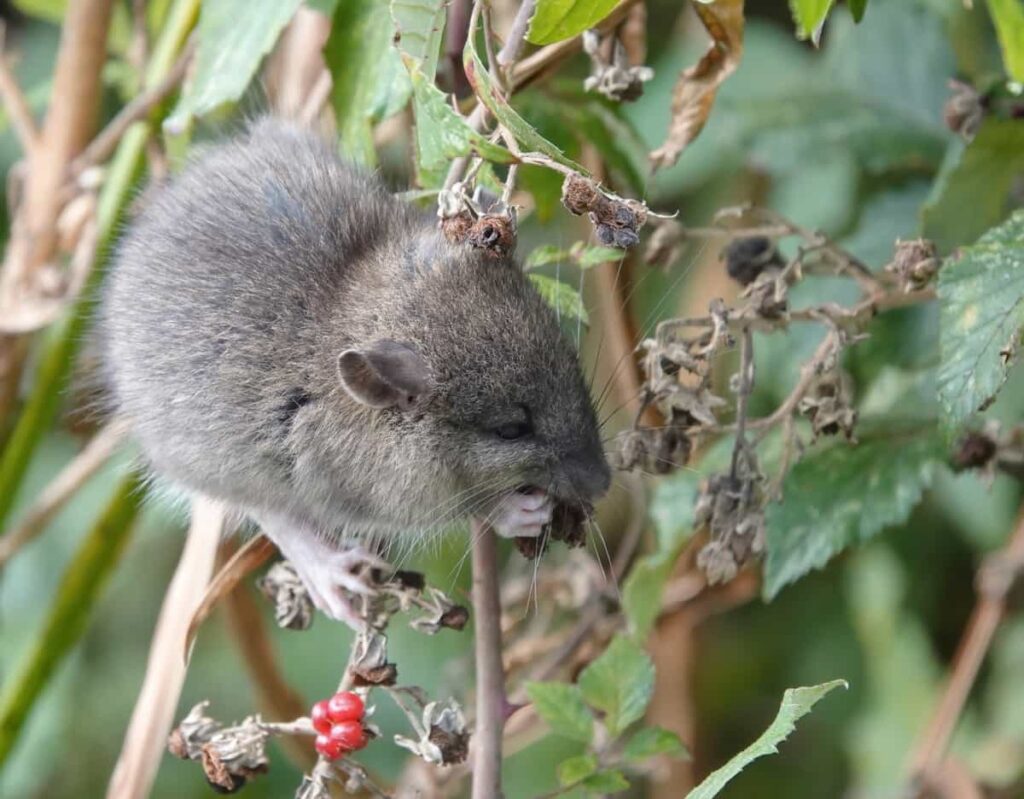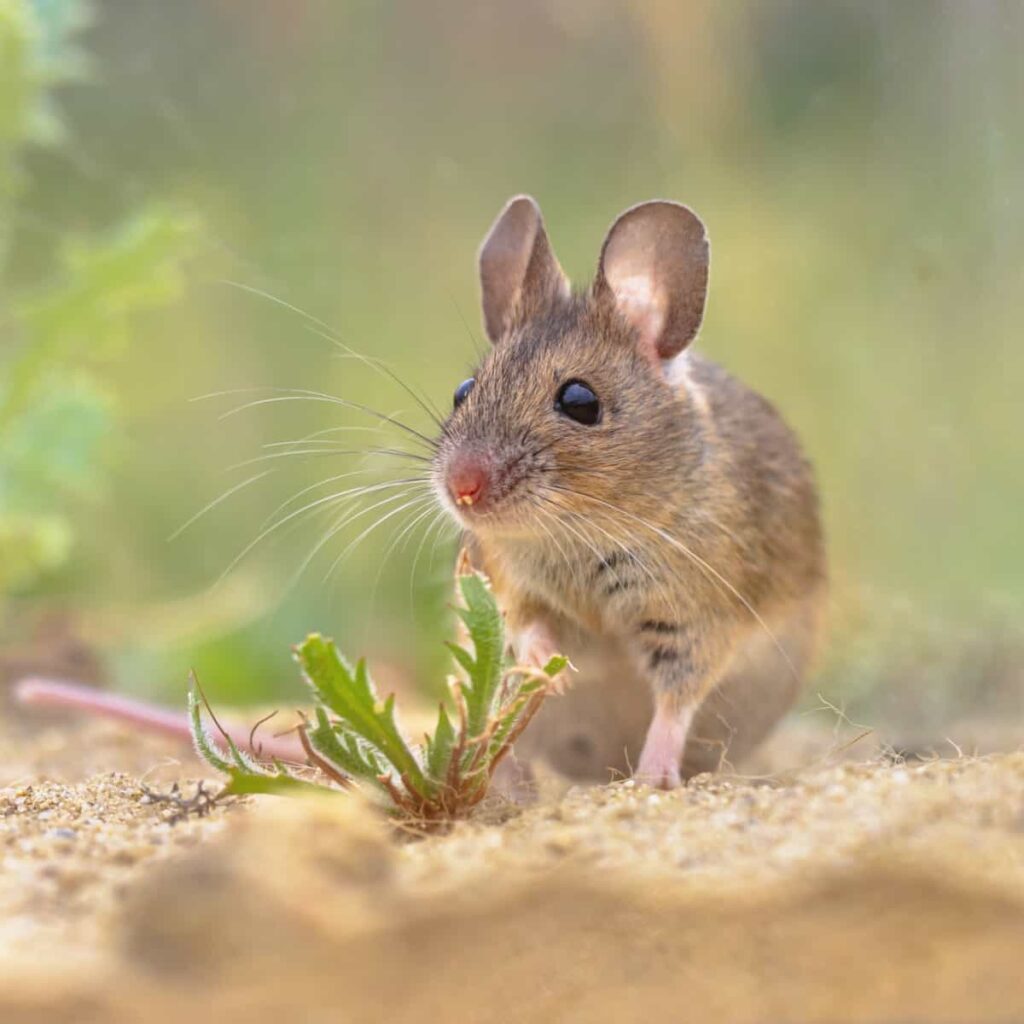Having a rat infestation in your home garden can have main effects on both your plants and overall well-being. Getting rid of rats naturally helps maintain the integrity and aesthetics of your garden space. A lush and thriving garden is a result of hard work and dedication, so it’s disheartening to see it damaged by these unwanted guests. By getting rid of rats naturally in your home garden, you’re not only protecting yourself from potential damage but also promoting a healthy and sustainable gardening practice.

How to Get Rid of Rats in the Home Garden Naturally
Seal All Entry Points
These pesky rodents are experts at finding small cracks and openings to sneak into your property. By blocking off their access points, you can effectively prevent them from entering and causing damage. Use steel wool to seal up these openings, as rats cannot chew through these materials easily. Don’t forget about the gaps underneath the doors. It’s also important to pay attention to outdoor structures like sheds and garages. Rats can find their way inside these buildings if there are any openings present. Seal off any cracks or gaps using wire mesh or concrete filler.
Clean Up Clutter and Remove Food Sources
To effectively get rid of rats naturally, it’s important to clean up any clutter and remove their access to food. Start by decluttering your garden area. Remove piles of wood, debris, and any unused items that may serve as hiding spots for rats. Keep the area well-maintained and organized to eliminate potential nesting sites.
Next, be sure to secure all food sources in rodent-proof containers. Regularly inspect your garbage cans for any openings or cracks that could allow rats inside. Use tightly fitting lids or invest in rat-proof garbage cans if necessary. Additionally, keep your garden free from fallen fruits or vegetables that can attract rodents.
Use Ultrasonic Repellent Devices
Ultrasonic-repellent devices work by disrupting the communication and navigation systems of rats, making them feel uncomfortable and disoriented. This discourages them from entering your garden or staying in it for long periods. Keep in mind that ultrasonic repellent devices may take some time to show noticeable effects as it can be a gradual process of deterring rats from your garden.
It’s important to check these devices regularly and maintain them, as they may require battery changes or cleaning. Remember that while ultrasonic repellents can be helpful in repelling rats, they should be used alongside other natural remedies mentioned earlier for maximum effectiveness in keeping those pesky rodents away.
Plant Rat-repelling Plants
Mint is one such plant that rats cannot stand. Planting mint around your garden or near areas where you suspect rat activity can help keep unwanted pests at bay. Another powerful plant for repelling rats is the marigold. Not only do these flowers add a pop of color to your garden, but their pungent scent also acts as a natural repellent for rodents. Plant marigolds near entrances to your garden or in pots placed strategically around key areas.
In case you missed it: How to Get Rid of Ants in Potted Plants: 10 Effective Ways to Control with Natural and Homemade DIY Pesticides

Rosemary is yet another herb that has proven effective in deterring rats. Consider planting rosemary bushes along fences or pathways to create an aromatic barrier against these pesky critters. Lavender, with its delightful aroma and beautiful purple flowers, is not just pleasing to humans but repels rodents as well. The potent scent emitted by lavender plants confuses and annoys rats, making them seek refuge elsewhere instead of invading your garden beds.
Encouraging Natural Predators
These predators can help keep the rat population under control without the use of harmful chemicals or traps. One predator that can be beneficial in this regard is the barn owl. Barn owls are excellent hunters and have a voracious appetite for rodents, including rats. By providing a suitable nesting site, such as an owl box or tree cavity, you can attract these majestic birds to your garden.
Another predator that can help eliminate rats is the domestic cat. Cats are known for their hunting instincts and love chasing after small prey like mice and rats. If you don’t have a cat of your own, consider attracting feral cats to your garden by leaving out food and water. In addition to owls and cats, other natural rat predators include snakes, foxes, and certain breeds of dogs. Creating habitats for these animals through proper landscaping techniques can encourage them to visit your garden regularly.
Use Peppermint Oil
It is a natural remedy that is effective in repelling rats from your home garden. The strong scent of peppermint acts as a deterrent for these pesky rodents, making them think twice before venturing into your garden. To use peppermint oil, soak cotton balls or rags in the oil and place them around areas where rats are likely to enter or hide.
Focus on entry points such as cracks in walls or gaps under doors. It’s important to note that while this method may help deter rats temporarily, it may not provide a long-term solution if you have an infestation. In such cases, professional pest control might be necessary.
Use Diatomaceous Earth
When rats come into contact with DE, its sharp edges cut through their exoskeletons and dehydrate them. It causes damage to their respiratory system as well. This means that by using diatomaceous earth in your garden, you can effectively deter rats without resorting to harmful chemicals or pesticides.
To use diatomaceous earth in your home garden, simply sprinkle a thin layer around areas where you suspect rat activity. Keep in mind that while diatomaceous earth is an excellent repellent for rodents like rats, it may need to be reapplied after rainfall or watering since it loses its effectiveness when wet. It’s important to monitor and reapply regularly, if necessary.
Set Traps Humanely
These traps are designed to catch the rats without injuring or killing them. Instead, they allow you to safely remove the rodents from your garden and release them into a more suitable environment. The popular type of humane trap is the live-catch trap. This type of trap uses bait to lure the rats inside a cage-like structure. Once trapped, you can then transport them elsewhere before releasing them back into their natural habitat.
In case you missed it: How to Grow Brahma Kamal Flower in the Home Garden: Guide for Growing in Pots and Ground

Another option is using catch-and-release snap traps that have been modified for humane use. These traps capture the rat but do not cause any harm or injury during the process. Keep checking your traps regularly so you can promptly release any caught rats and maintain an effective rodent control strategy in your home garden.
Use Rat-Repelling Granules
These granules are made with ingredients that rats find repulsive, such as essential oils and other natural compounds. By sprinkling these granules around your garden, you create an invisible barrier that deters rats from entering. The advantage of using rat-repelling granules is their easy application. Scatter them in areas where rats are likely to frequent, like near entry points or around plants they are attracted to. The smell emitted by the granules will discourage rats from approaching these areas.
Maintain Compost Bins Properly
It’s crucial to choose the right type of compost bin. Choose one with a secure lid that rats cannot easily access. Additionally, make sure the bin is made of sturdy material that rodents cannot chew through. Regularly turning and aerating the compost pile is another essential step in proper maintenance. This helps speed up decomposition and prevents odors from building up, which can attract rats. It’s recommended to turn the pile every few weeks using a pitchfork or shovel.
Frequently Asked Questions (FAQ) on Get Rid of Rats in the Home Garden
How Can I Identify If Rats Are Infesting My Home Garden?
There are a few signs to look out for that indicate rat activity in your garden. Watch for droppings, gnaw marks on plants or structures, burrows in the ground, and chewed-up fruits or vegetables. If you spot any of these signs, rats have likely made themselves at home in your garden.
Can Keeping a Clean Environment Reduce Rat Infestations in Gardens?
Absolutely! Maintaining cleanliness by removing food sources (such as fallen fruits) promptly and keeping garbage bins tightly sealed will make your garden less attractive to hungry rodents.
In case you missed it: Know the Process of Making Coco Peat at Home: Step-by-Step Guide

What Measures Should I Take Apart from Trapping or Repelling Rats Naturally?
Consider sealing any entry points into buildings near your garden area with steel wool or caulk so that they cannot access sheltered areas.
Conclusion
Rats can cause a multitude of problems when they invade your home garden. Employing natural methods allows for sustainable pest control practices in line with eco-friendly gardening principles. Eliminating rats from your home garden naturally is essential for preserving plant health, maintaining an attractive landscape appearance, safeguarding biodiversity, and promoting sustainable gardening practices without resorting to harsh chemicals or traps.
- Management Pests and Diseases in Your Cotton Field
- Sheep Farming Business Plan for Beginners
- Aquaponic Farming at Home: A Step-By-Step Guide
- Profitable Village Farming Business Ideas in 2024
- High-Yield Aquaculture: Fast-Growing Fish for Farming
- Effective Fish Pond Construction Techniques for Beginners
- Irrigation and Water Management in Pineapple Farming
- Blossom to Harvest: Mastering Flowering and Pollination in Papaya Farming
- Pig Fattening Essentials: From Selection to Sale for Beginners
